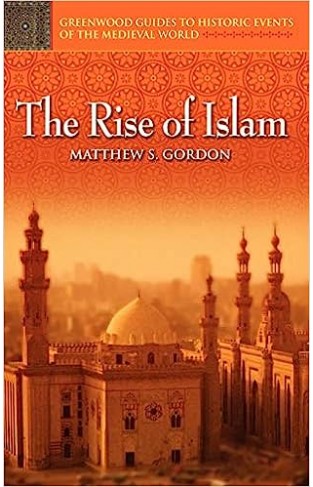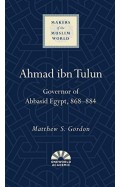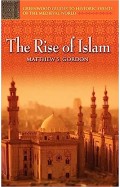The Rise of Islam
By: Matthew S. Gordon
-
Rs 1,036.00
- Rs 1,295.00
- 20%
You save Rs 259.00.
Due to constant currency fluctuation, prices are subject to change with or without notice.
The birth of Islam in the 7th century and its subsequent outward expansion from the Arab world has been one of the most influential occurrences in world history. During its first few decades, the new faith inspired conquests from Spain to northern India. In this illuminating study, the author tracks the rise of Islam from it 7th century beginnings with the life of the Prophet Muhammad to the collapse of the Islamic empire in the early 10th century. He demonstrates how a sophisticated, new religion and society emerged to become one of the world's most vital and sustained cultures.
The opening chapter provides an outline of the history of early Islamic society over a period of roughly three centuries, from the early 7th to the early 10th centuries, concentrating on pre-Islamic Arab countries and the life of the Prophet. Subsequent chapters treat Arab-Islamic conquests; the early Islamic empire; and society and religion, particularly in the early Abbasid period (750-925 C.E.). The spread of urbanization throughout the early Islamic world is highlighted. Fifteen brief biographies of key figures such as Qur'an commentators, empire-building caliphs, scholars, and military leaders help to add a personal human element to the data, and 15 translated primary documents ranging from key Qur'annic passages to contemporary accounts of military campaigns bring the history to life. A glossary of terms, a timeline, and selected bibliography aid student research. The work is fully indexed.
The birth of Islam in the 7th century and its subsequent outward expansion from the Arab world has been one of the most influential occurrences in world history. During its first few decades, the new faith inspired conquests from Spain to northern India. In this illuminating study, the author tracks the rise of Islam from it 7th century beginnings with the life of the Prophet Muhammad to the collapse of the Islamic empire in the early 10th century. He demonstrates how a sophisticated, new religion and society emerged to become one of the world's most vital and sustained cultures.
The opening chapter provides an outline of the history of early Islamic society over a period of roughly three centuries, from the early 7th to the early 10th centuries, concentrating on pre-Islamic Arab countries and the life of the Prophet. Subsequent chapters treat Arab-Islamic conquests; the early Islamic empire; and society and religion, particularly in the early Abbasid period (750-925 C.E.). The spread of urbanization throughout the early Islamic world is highlighted. Fifteen brief biographies of key figures such as Qur'an commentators, empire-building caliphs, scholars, and military leaders help to add a personal human element to the data, and 15 translated primary documents ranging from key Qur'annic passages to contemporary accounts of military campaigns bring the history to life. A glossary of terms, a timeline, and selected bibliography aid student research. The work is fully indexed.
Ahmad ibn Tulun: Governor of Abbasid Egypt, 868–884 (Makers of the Muslim World)
By: Matthew S. Gordon
Rs 10,795.50 Rs 11,995.00 Ex Tax :Rs 10,795.50
Zubin Mehta: A Musical Journey (An Authorized Biography)
By: VOID - Bakhtiar K. Dadabhoy
Rs 630.00 Rs 1,050.00 Ex Tax :Rs 630.00
The Origins of Political Order From Prehuman Times to the French RevolutioN
By: Francis Fukuyama
Rs 3,505.50 Rs 3,895.00 Ex Tax :Rs 3,505.50
Manning Up: How the Rise of Women Has Turned Men into Boys
By: Kay Hymowitz
Rs 796.00 Rs 995.00 Ex Tax :Rs 796.00
The Obama Syndrome: Surrender At Home War Abroad
By: Tariq Ali
Rs 1,165.50 Rs 1,295.00 Ex Tax :Rs 1,165.50
The Quest For Meaning: Developing A Philosophy Of Pluralism
By: Tariq Ramadan
Rs 1,255.50 Rs 1,395.00 Ex Tax :Rs 1,255.50
The Pakistan US Conundrum Jihadists The Military And The People The Struggle For Control
By: Yunas Samad
Rs 1,255.50 Rs 1,395.00 Ex Tax :Rs 1,255.50
An Enemy We Created: The Myth Of The Taliban Al Qaeda Merger In Afghanistan 19702010
By: Alex Strick van Linschoten
Rs 4,200.00 Rs 5,250.00 Ex Tax :Rs 4,200.00
WikiLeaks: Inside Julian Assanges War on Secrecy
By: David Leigh & Luke Harding
Rs 680.00 Rs 850.00 Ex Tax :Rs 680.00
No similar books from this author available at the moment.
No recently viewed books available at the moment.
Zubin Mehta: A Musical Journey (An Authorized Biography)
By: VOID - Bakhtiar K. Dadabhoy
Rs 630.00 Rs 1,050.00 Ex Tax :Rs 630.00
Ahmad ibn Tulun: Governor of Abbasid Egypt, 868–884 (Makers of the Muslim World)
By: Matthew S. Gordon
Rs 10,795.50 Rs 11,995.00 Ex Tax :Rs 10,795.50















-120x187.jpg?q6)





-120x187.jpg?q6)



-120x187.jpg?q6)



